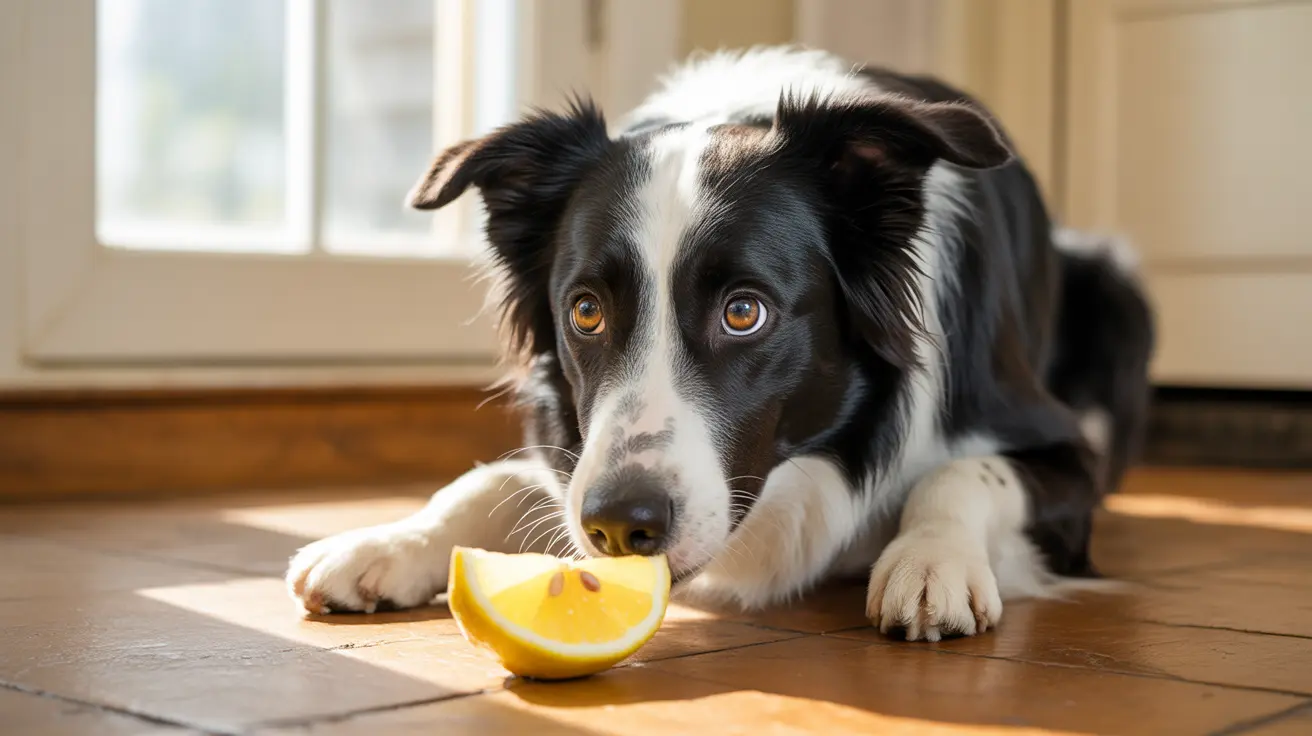If you've ever wondered "can dogs have lemons," the answer is clear: lemons are not safe for dogs to eat. While these citrus fruits offer numerous health benefits for humans, they can pose serious risks to our canine companions. Understanding why lemons are dangerous for dogs and what to do if your pet accidentally consumes them is crucial for every dog owner.
In this comprehensive guide, we'll explore the dangers of feeding lemons to dogs, identify the toxic compounds involved, and outline the steps to take if your dog ingests lemon. We'll also discuss safer alternatives to ensure your pet's health and well-being.
Understanding Lemon Toxicity in Dogs
Lemons contain several compounds that are toxic to dogs, including citric acid, essential oils (limonene and linalool), and psoralens. These substances can cause various adverse reactions in dogs, ranging from mild discomfort to severe health issues. The concentration of these toxic compounds is highest in the lemon peel, seeds, and pith (the white part between the peel and flesh).
Even the flesh of the lemon, while not technically toxic, can cause problems due to its high acidity. Dogs' digestive systems aren't designed to process citrus fruits like lemons, making them particularly susceptible to gastrointestinal upset.
Common Symptoms of Lemon Poisoning in Dogs
Immediate Reactions
When dogs consume lemons, they may experience immediate symptoms including:
- Excessive drooling
- Vomiting
- Diarrhea
- Stomach pain
- Pawing at the mouth
Serious Complications
More severe reactions can include:
- Central nervous system depression
- Liver problems
- Photosensitivity
- Difficulty walking or loss of coordination
- Skin irritation or rashes
What to Do If Your Dog Eats Lemon
If you catch your dog eating lemon or suspect they've consumed any part of the fruit, take these immediate steps:
- Remove any remaining lemon pieces from your dog's reach
- Check how much and which parts of the lemon were consumed
- Monitor your dog for symptoms
- Contact your veterinarian immediately if you notice any concerning signs
Your veterinarian may recommend bringing your dog in for examination, especially if they've consumed a large amount or are showing severe symptoms. In some cases, immediate treatment may be necessary to prevent complications.
Prevention and Safe Alternatives
The best approach is to prevent access to lemons entirely. Keep lemons, lemon juice, and products containing lemon oils safely stored away from your pets. If you're looking for healthy fruit options for your dog, consider these safer alternatives:
- Apple slices (without seeds)
- Watermelon (seedless)
- Blueberries
- Banana pieces
- Fresh pineapple (in moderation)
Frequently Asked Questions
Can dogs eat lemons safely, and what are the potential health risks?
No, dogs cannot safely eat lemons. The potential health risks include digestive upset, central nervous system depression, liver damage, and photosensitivity. Even small amounts can cause adverse reactions in dogs.
Why do lemons make dogs sick, and what are the toxic compounds involved?
Lemons make dogs sick due to toxic compounds including citric acid, limonene, linalool, and psoralens. These substances can irritate the digestive system and potentially cause liver damage when metabolized by dogs.
How should I treat my dog if it accidentally eats a lemon or lemon rind?
If your dog eats lemon, monitor them closely for symptoms and contact your veterinarian immediately. Remove any remaining lemon pieces and provide fresh water. Treatment will depend on the amount consumed and severity of symptoms.
Are there any safe alternatives to lemons that can provide similar benefits for dogs?
Yes, there are many safe fruit alternatives for dogs, including apples, watermelon, and blueberries. These fruits provide beneficial nutrients without the risks associated with lemons.
What are the signs of lemon toxicity in dogs, and when should I seek veterinary help?
Signs of lemon toxicity include vomiting, diarrhea, drooling, lethargy, and coordination problems. Seek immediate veterinary help if you notice any of these symptoms or if you know your dog has consumed a significant amount of lemon.
Remember, while lemons might be a healthy addition to human diets, they have no place in your dog's food bowl. Always err on the side of caution and consult with your veterinarian about safe, healthy treats for your canine companion.






